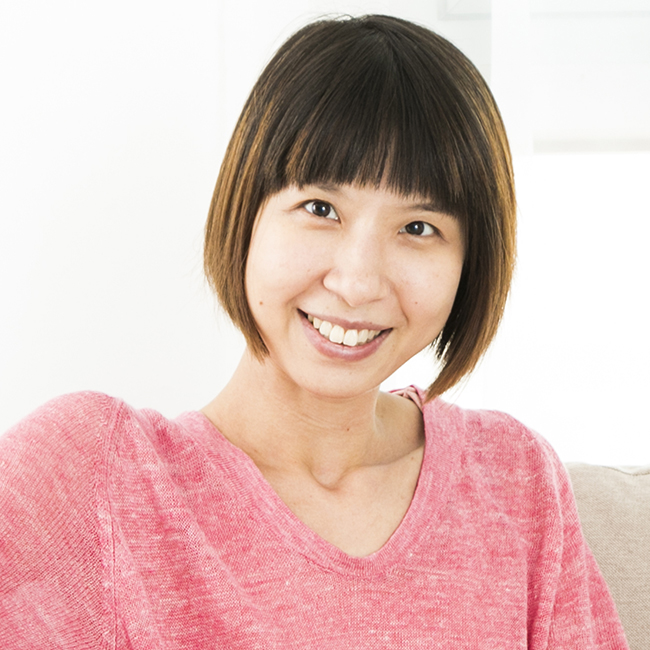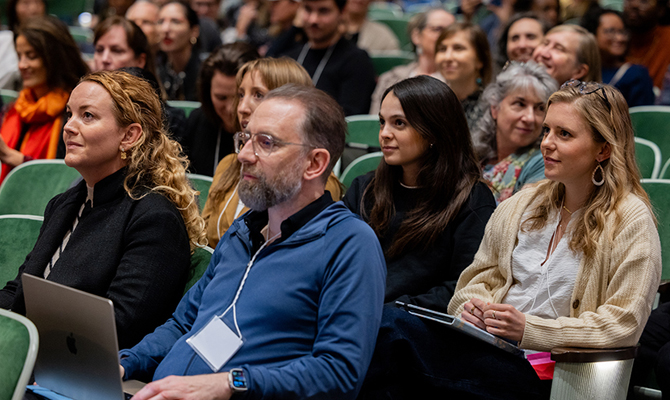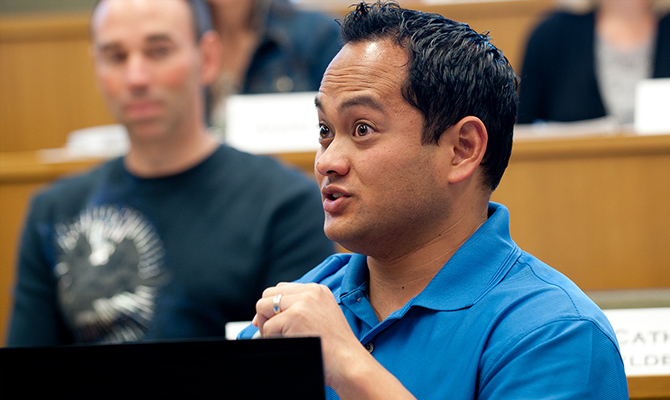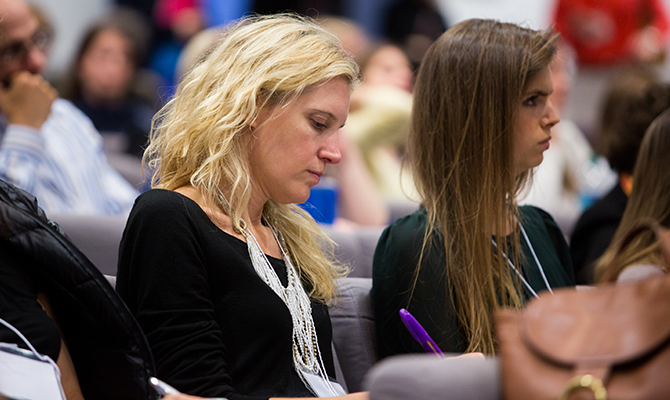
Founder and owner of Make Positive; Registered social worker
Master of Applied Positive Psychology, University of Pennsylvania ’22
Master of Social Work, University of Hong Kong ’08
Bachelor of Arts in Translation, Hong Kong Baptist University ’02
Positive psychology, says Jasmine Shu-Kay Choi, is like a “psychological vaccine. And I believe that prevention is better than cure." Although she already had a master’s degree and years of professional experience in social work and education, Jasmine decided to pursue the Master of Applied Positive Psychology (MAPP) program to enhance her impact. “First thing, I really want to deepen my academic knowledge in positive psychology from the world’s leading scholars and experts. I want to be a responsible and professional practitioner in that field in order to become a recognized and influential educator. I don't want to just teach others with a few readings. I really want to have first-hand, latest knowledge in the field,” Jasmine explains. “Also, I long to be surrounded by ambitious, like-minded people so that inspiration for innovative applications of the subject would arise through rich conversations among people from diverse geographical and professional backgrounds.”
Jasmine began this journey when she encountered many counseling cases with emotional disturbances during her social work fieldwork placement in a government-integrated family service center. "Rather than profoundly relying on offering endless remedial therapies to our service users, I wished to promote the use of this psychological ‘vaccine’ for protecting their well-being—just as how they are health-conscious about their physical body. I have a dream to advocate for this through applying the evidence-based strategies of positive psychology,” she says.
Since 2009, Jasmine has offered training to in-house social workers in a non-government organization, and a few years later she founded her own company, Make Positive, with a clear dedication to expanding her audience to many others, including school principals, teachers, parents, organizational staff, as well as church members and public individuals. Collaborating with local universities on research projects applying a whole-school approach to positive education, Jasmine has the opportunity to empower teachers and parents, develop student curriculum, and integrate the culture into the environment to promote children and adults' well-being. “Hong Kong has a high-achieving, demanding education requirement,” says Jasmine. “If we can support a school in applying positive psychology education and support parents in applying it at home, it would be a powerful benefit for the next generation. I have found that it’s like a ripple effect in the Hong Kong education system—a lot of different schools have been picking up on this change.”
It is in her role as a project trainer and consultant that Jasmine became acquainted with the Bei Shan Tang Foundation, which awarded her the Bei Shan Tang Scholarship to pursue MAPP full-time with an intention to contribute to the Foundation’s positive education projects in Hong Kong for two years after the program. “I’m so grateful. Without that support I would not be able to do this degree,” she says. “And since we have been working together, we have built trust and a working partnership. So in the future, after I finish my program, I will be spending two years with them as a volunteer—putting my capstone into action with them.”
Jasmine’s capstone focuses on evidence-based, research-informed strategies to promote well-being in parents—which will help them promote well-being in their children. “It’s like when you go on an airplane and there’s an announcement to help yourself first before you put the oxygen on your kids. My idea is that parents really need to take care of our own well-being too,” says Jasmine. “In most of the parenting programs in the world so far, it's more about teaching the parents how to discipline their children. But in my experience, I find that parents already know that they should treat their children in a positive way. Sometimes they lack the patience or they cannot apply their skills because they are really exhausted or overworked.” She hopes that the program can fit into supporting the expanding implementation of positive education development in recent years.
Of course, Jasmine has had the opportunity to apply some of her positive psychology coursework at home with her own family, using concepts such as keeping a gratitude journal, identifying character strengths, and building high-quality connections at home in addition to work. Another useful technique is task enabling: “When we study for exams, instead of just telling my son directly what to do, I try to design the study time in a playful way and find methods to help him perform in a successful manner,” Jasmine explains. “Then we have a more relaxing and engaging study experience at home.”
For the rigorous full-time MAPP program, Jasmine found herself completing a substantial amount of reading and assignments even while pursuing her full-time work. Remote MAPP courses are typically scheduled in Eastern Time—twelve hours behind Hong Kong—so she often engaged in virtual class discussions in the middle of the night and continued the dialogue with her classmates as the sun rose. What kept her engaged—and awake—during those hours was the creative and interactive teaching design such as using drama, dance, and small group discussions. She is also impressed that the MAPP program valued her as a person and cared about her well-being. “They are not just teaching positive psychology. They incorporate it into the whole process,” she says. Even during the recruitment process, the MAPP program director encouraged her to take time to savor and celebrate her acceptance into the program; during the Chinese New Year, she was invited to share her family traditions (and creative COVID-19-era celebrations) with her cohort. In general, Jasmine felt that the online MAPP community was well-designed to maximize high connections and personal interactions. “There are experiential interventions and discussions to help you to apply what you have learned in real and professional life, and help you get inspired because you have connected with each other on the online discussion forum,” she says. “Even though we are all over the world, in front of our monitors in different places, we have authentic connection. There were tears and laughter.”
“Be prepared to receive the challenge,” Jasmine concludes. “It is indeed a demanding and challenging process that pushes us in a positive way, and there is a lot of support. I'm sure students will embrace and savor it for a lifetime.”






